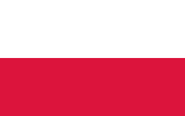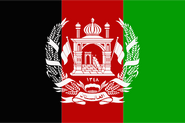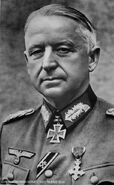Introduction
|
The 27 September 1938 was the culmination of several months of escalating tension between Nazi Germany and Czechoslovakia, known as the Sudeten Crisis. Germany demanded in the Godesberg Memorandum that Czechoslovakia should cede the Sudetenland no later than 28 September 28, 1938. The memorandum stated an ultimatum for Czech acceptance of it, expiring at 2 PM on 28 September; if the Czech government would not agree to Hitler's demands by then, Germany would take the Sudetenland by force. Czechoslovakia, which initially had accepted a British-French proposal to resolve the dispute, issued a decree of full mobilization on 23 September and rejected the Germans' demands. Czechoslovakia's allies - France and the Soviet Union - had also initiated partial mobilization of their armed forces, while the United Kingdom mobilized the Royal Navy. Europe was now on the brink of a new war.
The war, however, was averted in the last minute. At 10:00 AM on 28 September, four hours before the deadline, the British ambassador to Italy, Lord Perth, called Italy's Foreign Minister Galeazzo Ciano, informing him that Chamberlain requested that Mussolini enter the negotiations and urge Hitler to delay the ultimatum. Ciano met Mussolini and informed him of Chamberlain's proposition; Mussolini agreed with it and responded by telephoning Italy's ambassador to Germany. Hitler received Mussolini's message and agreed to a 24-hour postponement. The following day the four great powers - Germany, the United Kingdom, France and Italy, met in Munich. A deal was reached, and at about 1:30 AM on 30 September 1938, Hitler, Chamberlain, Mussolini and Daladier signed the Munich Agreement. The agrement was nearly identical to the Godesberg proposal: the German army was to complete the occupation of the Sudetenland by 10 October, and an international commission would decide the future of other disputed areas. Czechoslovakia was informed by Britain and France that it could either resist Nazi Germany alone or submit to the prescribed annexations. The Czechoslovak government, realizing the hopelessness of fighting the Nazis alone, reluctantly capitulated and agreed to abide by the agreement.
But what if the last minute negotiations on 28 September had never occurred, thus resulting in a German invasion of Czechoslovakia on 30 September 1938? This timeline explores the global history after an agreement between the Czechoslovak Government and representatives of the Slovak and German minorities, forcing the French and the British to support Czechoslovakia.
The name of the timeline is a reference to a radio address to the nation by British Prime Minister Neville Chamberlain on 27 September 1938, in which he stated:
| “
|
How horrible, fantastic, incredible it is that we should be digging trenches and trying on gas-masks here because of a quarrel in a far-away country between people of whom we know nothing. It seems still more impossible that a quarrel that has already been settled in principle should be the subject of war.
|
”
|
|
Point of Divergence
|
On 26 September, Hitler gave Czechoslovakia a deadline of 28 September at 2:00 PM to cede the Sudetenland to Germany or face war.
The main point of divergence in the timeline occurs in the evening of 27 September 1938. The British ambassador to Italy, Earl of Perth, wished to suggest Italian leader Benito Mussolini be asked to act as peacemaker. Thus he attempted to contact the Foreign Office to request permission for asking Italy's Foreign Minister Galeazzo Ciano to convince Hitler to accept Chamberlain's timetable proposal. The following morning, the British chargé d'afaires, Pierson Dixon, arrived at work early, only to discover that no telegram from the Foreign Office had been received. While the British Foreign Secretary, Viscount Halifax had sent a telegram in response approving the approach, the telegram was lost before Dixon arrived at work. The telegram was likely accidentally destroyed by an embassy staffer, as the embassy was destroying archives and packing up to go home, trying hard not to give the impression of panic.
As a result, when Earl Perth arrived at the British embassy at 11:00 AM, there was no telegram from the Foreign Office. After the embassy received a telegram containing Chamberlain’s letter to Mussolini, Perth met with Ciano at the Palazzo Chigi shortly after 12:00 PM. Hitler received Attolico at 1:20 PM, fourty minutes before the deadline, who presented the message from Mussolini calling for a 24-hour delay and a five-power conference, but also committed Italy to stand behind Germany if Hitler decided to ignore the request. Hitler, having earlier had doubts whether to accept the proposal of a conference, had been encouraged by Ribbentrop not be deterred by the French and British to fight. The diplomatic efforts by Britain and Italy had come too late.
After the deadline had passed Germany immediately broke off diplomatic relations with Czechoslovakia. Hitler gave the order for the German army to take up positions at 06:30 on 30 September. Hitler also issued the Directive No. 1 for the Conduct of the War, ordered hostilities against Czechoslovakia to start at 06:15 on 1 October (X-Tag) and silently ordered the full mobilization of the Wehrmacht. At 06:15 on 1 October 1938, Germany invaded Czechoslovakia. On 3 October, France, the United Kingdom and the Soviet Union declared war on Germany.
|
|
|
Current events
|
12 July 2021 – ongoing
- Template:Country data Germany
 Central Europe — 2021 European floods: Flooding caused by severe rain in the border region of Germany and Belgium has left at least 204 people dead, including 166 in Germany, 36 in Belgium, 1 in Italy and 1 in Austria. In Germany, the states of Rhineland-Palatinate, North Rhine-Westphalia, Bavaria and Baden-Württemberg were the most affected areas. Austria, Croatia, Luxembourg, the Netherlands, Switzerland and Italy also experienced floods. Damage to infrastructure was especially severe in Germany. The event is attributed to a slowed jetstream caused by climate change. Central Europe — 2021 European floods: Flooding caused by severe rain in the border region of Germany and Belgium has left at least 204 people dead, including 166 in Germany, 36 in Belgium, 1 in Italy and 1 in Austria. In Germany, the states of Rhineland-Palatinate, North Rhine-Westphalia, Bavaria and Baden-Württemberg were the most affected areas. Austria, Croatia, Luxembourg, the Netherlands, Switzerland and Italy also experienced floods. Damage to infrastructure was especially severe in Germany. The event is attributed to a slowed jetstream caused by climate change.
11 July 2021 – ongoing
 San Antonio de los Baños, Cuba — Thousands of Cubans, most of them young, attended rare anti-government protests to protest the increased food and medicine shortages brought on by the COVID-19 pandemic, the government response to the COVID-19 pandemic and curbs on civil liberties, and demanded the resignation of President Miguel Díaz-Canel and the end of Communist rule. San Antonio de los Baños, Cuba — Thousands of Cubans, most of them young, attended rare anti-government protests to protest the increased food and medicine shortages brought on by the COVID-19 pandemic, the government response to the COVID-19 pandemic and curbs on civil liberties, and demanded the resignation of President Miguel Díaz-Canel and the end of Communist rule.
11 June – 11 July 2021
  Europe — The UEFA Euro 2020 was held in 11 different countries. In the final, Denmark won their second European Championship title by beating Italy on penalties in the final following a 1–1 draw after extra time. Europe — The UEFA Euro 2020 was held in 11 different countries. In the final, Denmark won their second European Championship title by beating Italy on penalties in the final following a 1–1 draw after extra time.
13 June – 10 July 2021
  Brazil — The 2021 Copa América was hosted in Brazil behind closed doors. Argentina won their fifteenth title after defeating Brazil 1–0 in the final, their first senior title since the 1993 edition of the same tournament. Brazil — The 2021 Copa América was hosted in Brazil behind closed doors. Argentina won their fifteenth title after defeating Brazil 1–0 in the final, their first senior title since the 1993 edition of the same tournament.
8 July 2021
- COVID-19 pandemic: The global death toll from COVID-19 surpasses 4 million.
7 July 2021 –
 Pétion-Ville, Haiti — Haitian President Jovenel Moïse was assassinated at 1:00 am local time in his home. First Lady Martine Moïse was injured and hospitalized.[147] Pétion-Ville, Haiti — Haitian President Jovenel Moïse was assassinated at 1:00 am local time in his home. First Lady Martine Moïse was injured and hospitalized.[147]
3 July 2021
  Tigray, Ethiopia — The United Nations announce that recent fighting in the Tigray region of Ethiopia has resulted in a famine that is now affecting more than 400,000 people. Tigray, Ethiopia — The United Nations announce that recent fighting in the Tigray region of Ethiopia has resulted in a famine that is now affecting more than 400,000 people.
1 July 2021
 Beijing, China — Celebrations of the 100th anniversary of the founding of the Communist Party of China were held in Beijing to celebrate the centennial of the founding of the Chinese Communist Party (CCP), which has been the sole governing political party of the People's Republic of China (PRC) since 1949. CCP General Secretary Xi Jinping, as the guest of honor, delivered an hour-long speech in which he warned that "any foreign force who attempted to bully China would find their heads broken and bashed bloody against the great wall of steel forged by the blood and flesh of 1.4 billion Chinese people." Beijing, China — Celebrations of the 100th anniversary of the founding of the Communist Party of China were held in Beijing to celebrate the centennial of the founding of the Chinese Communist Party (CCP), which has been the sole governing political party of the People's Republic of China (PRC) since 1949. CCP General Secretary Xi Jinping, as the guest of honor, delivered an hour-long speech in which he warned that "any foreign force who attempted to bully China would find their heads broken and bashed bloody against the great wall of steel forged by the blood and flesh of 1.4 billion Chinese people."
|
|





































